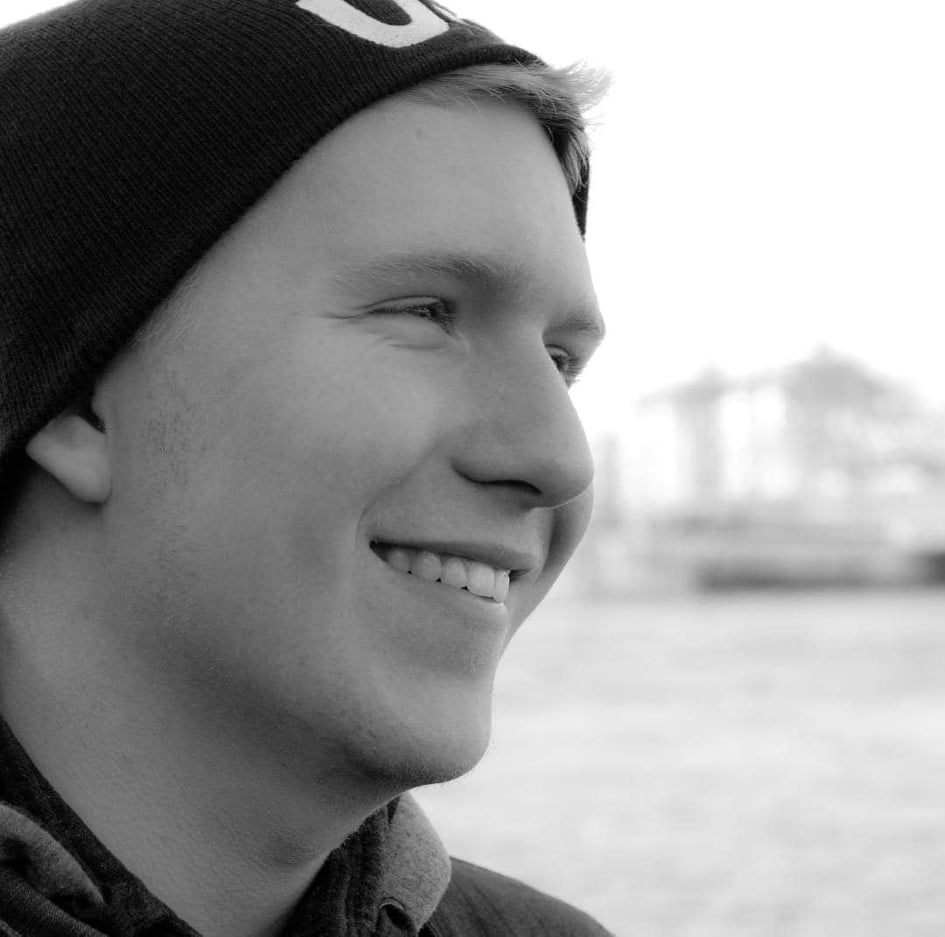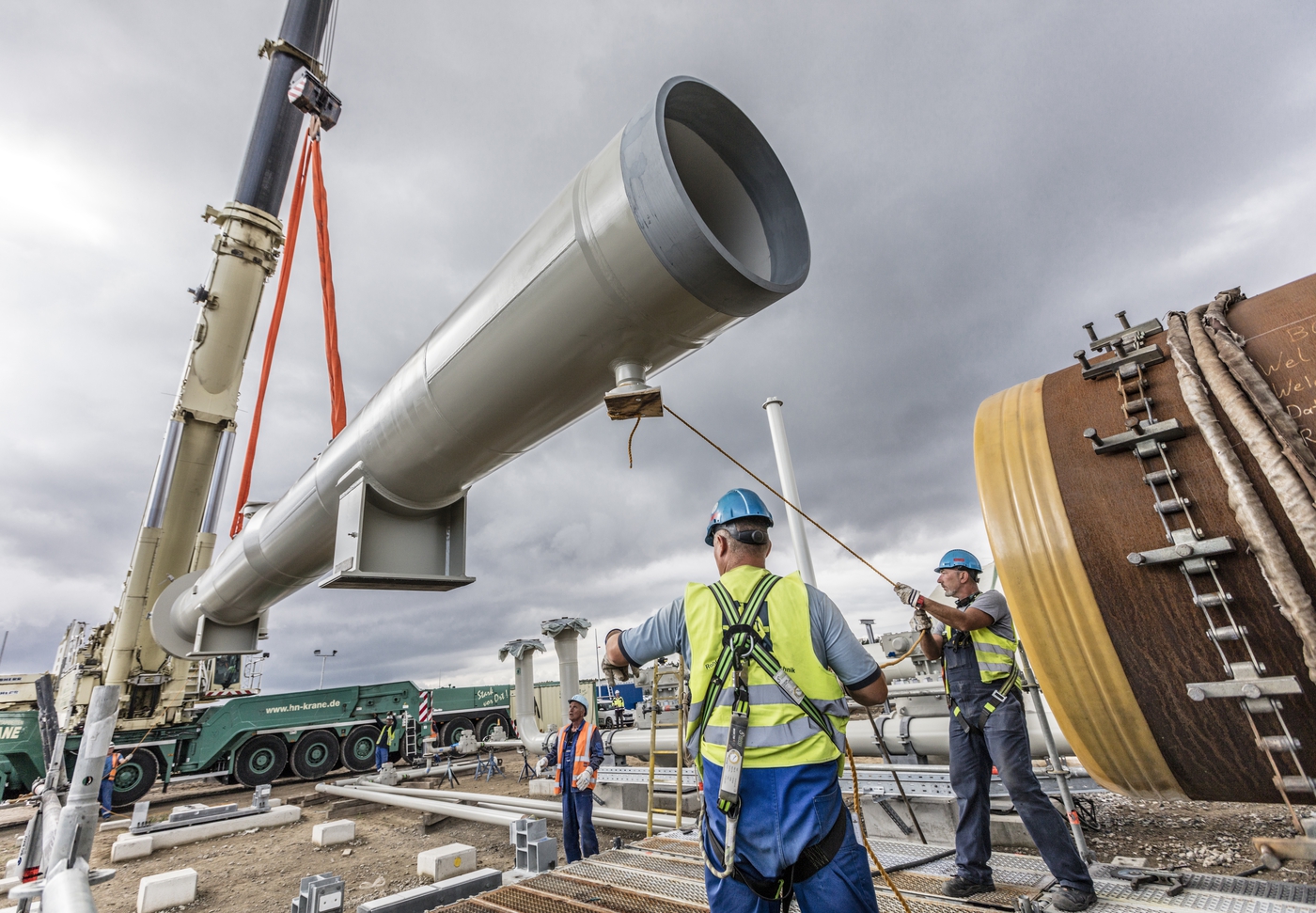Nord Stream 2, an $11 billion undersea gas pipeline meant to connect Russia’s rich gas fields with fuel-hungry European energy markets, has found itself at the center of a conflict between the West and Russia.
A great deal of Russian gas had to go overland, through Ukraine, to reach Europe. By building a high-capacity pipeline running straight from Russia to Germany under the Baltic Sea, the Kremlin wants to cut Ukraine out of the loop, making it lose its lucrative transit fees and an important bargaining chip against Russian aggression. The project was completed on Sept. 10.
Nord Stream 2 enjoyed the support of the German government, including former German Chancellor Angela Merkel. She defended the pipeline against critics who warned that the project would hurt Ukraine and increase Europe's dependence on Russia's gas, giving the autocratic government in the Kremlin even more power.
However, with a new left-wing government taking power in Germany, and Russia massing nearly 100,000 invasion-ready troops on the borders of Ukraine, Nord Stream 2 has come under renewed scrutiny. The project has become part of the larger debate about European geopolitics and energy security.
The project now awaits certification from the German energy regulator, which has put it on hold. Now, the future of the project and with it, the future of Ukraine hang in the balance.
What is the Nord Stream 2 pipeline?
Nord Stream 2 is a system of two parallel pipes linking Russia’s Yamal gas fields with Germany. The pipes make landfall at the German town of Lubmin, in the bay of Greifswald. The pipeline is capable of transporting up to 55 billion cubic meters of natural gas per year.
It is a project developed by Russian energy monopoly Gazprom and western energy giants Shell, E.ON, OMV, and Engie. According to the project’s website, the pipeline is intended to “enhance security of supply, support climate goals, and strengthen the internal energy market.” The first length of pipe was laid in 2018.
Why was the Nord Stream 2 pipeline completed?
Ukraine has repeatedly called on the U.S. and European countries to help stop the pipeline before it was finished. For a time, the U.S. looked like it would.
In 2019, the administration of then-U.S. President Donald Trump threatened sanctions against companies involved in the project. In December 2019, he signed a law imposing sanctions on any firm helping Gazprom finish the pipeline. This halted construction until December 2020, when Russian ships resumed their work.
Spurred by a bipartisan effort, Congress in January 2021 authorized the White House to sanction these companies. While some companies and vessels were eventually sanctioned, Nord Stream 2 AG, the main consortium building the pipeline, evaded this fate.
In May, U.S. President Joe Biden said he saw the project as "almost complete" and did not want to sabotage his ability to improve relations with Germany. On July 20, Biden and Merkel struck a deal on Nord Stream 2, agreeing the U.S can trigger sanctions against Russia if Nord Stream 2 is used as a “political weapon.”
Will Nord Stream 2 become operational?
According to Bloomberg, Gazprom had initially intended for the pipeline to be operational by October, however the German government now believes that the project’s official launch could be delayed until March 2022.
Before the pipeline can be filled with gas, it needs to be certified by Germany's energy regulator. Under European rules, half of the pipeline's capacity must be auctioned to third parties. There are no third-party gas exporters in Russia, where Gazprom is a state monopoly.
In mid-November, Germany suspended certification. The regulator said that Russian gas monopoly Gazprom had yet to set up an operating subsidiary that complied with German law.
The project is also highly politicized. It enjoyed support under the CDU-CSU-SPD government of Merkel. However, the new SPD-Greens-FDP coalition government under new chancellor Olaf Scholz has been critical of the project.
New German foreign minister, and leader of the Greens, Annalena Baerbock, has threatened to refuse to certify the project, citing problems with “security issues.” According to Baerbock, if Russia further escalates its war against Ukraine then Germany will refuse to connect the Nord Stream 2 pipeline to German gas infrastructure.
The U.S. has reportedly expressed to its European allies that it expects the pipeline to be shut down if Russia launches its large-scale invasion of Ukraine.
Why is Nord Stream 2 important to the West?
In the context of Russia’s aggression against Ukraine and the potential for a full-on invasion on the table, Nord Stream 2 could be an important tool for bringing Russia back to the negotiating table.
According to the Nord Stream 2 website, Gazprom has spent around $5.4 billion on the pipeline and would double Moscow’s gas exports to Germany. Western nations seemingly hope to leverage Russia’s investment in the Nord Stream 2 project to avoid escalation in Ukraine.
On Dec. 12, U.S. Secretary of State Antony Blinken identified the pipeline as “a source of leverage on Russia.”
According to Blinken, Putin is eager to see gas flow through the pipeline. “It’s very unlikely or hard to see that happening if Russia has renewed its aggression on Ukraine,” he told NBC.
Why is Nord Stream 2 important to Russia?
Besides the massive profits which Russia would make by selling gas to Europe, the Nord Stream 2 pipeline also plays an important geopolitical role for Russia. The pipeline allows Russia to isolate Ukraine, as Russia will no longer need to rely on the neighboring country to transport the gas.
Gas prices soared over the past year as Russia restricted its gas supply to Germany and the European Union and refused to use Ukrainian infrastructure. In October, the price of gas on the Dutch TTF reached a record $131 per megawatt-hour. Russia is widely seen as hoping to force Europe’s hand on Nord Stream 2 by creating an artificial shortage which Nord Stream 2 would appear to resolve.
Russia’s blackmail doesn’t stop with just price gouging. To encourage EU member states to soften their position on Nord Stream 2, Russia now has several current and former diplomats in its employ, most famous of whom is former German Chancellor Gerhard Schröder, who is reportedly paid $350,000 annually to lobby in Europe as chairman of the board of Nord Stream AG and director of the board of Russian oil producer Rosneft.
Russia also bankrolls former French prime minister Francois Fillon, who is now the head of Russian state oil company Zarubezhneft. In March 2019, Fillon met with the head of Gazprom Management Committee Alexey Miller, a known Putin associate, to promote the Nord Stream 2 pipeline.
According to LobbyFacts.eu, Nord Stream AG spent up to 600,000 euros in 2020 on lobbying the European Commission, where it had 17 meetings with the commission members. The Russian project equally paid $1.69 million to several prominent lobbyist groups in Washington D.C. in the first half of 2020 alone.
According to Reuters, Russian Deputy Prime Minister Alexander Novak stated on Oct. 6 that Germany’s certification of the Nord Stream 2 pipeline would allow Russia to stabilize current gas prices, bringing an end to the current European energy crisis.
How does Nord Stream 2 impact Ukraine?
Nord Stream 2 threatens both Ukraine’s energy and military security. Most significantly, Russia’s refusal to use Ukraine’s gas transit infrastructure would cost Ukraine around $1.5 billion, possibly up to $2 billion in lost transit fees per year.
Russia has a “pump-or-pay” agreement with Ukraine through 2024, meaning that it is obliged to pay the minimum gas-transit fees regardless of whether it meets the contracted volumes of gas through Ukraine.
Russia has all but stopped gas transit through Ukraine, refusing to buy any capacity for any additional volumes of gas at auctions in October.
When Russia no longer needs Ukraine's infrastructure, Kyiv can't use its leverage as a transit country to try to make the Kremlin back down from aggression. Ukraine would become even more reliant on Western support to maintain its territorial integrity.













